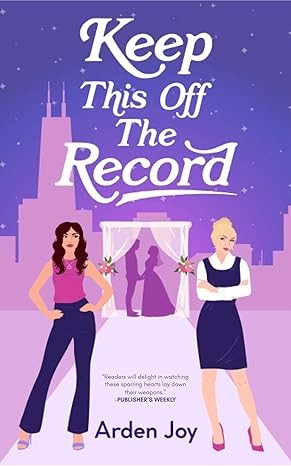The sacred pact between romance writers and their readers requires that there be a happy ending by the end of the book. No matter how perilous or emotionally fraught the situation becomes, readers go in with the security of knowing that the couple will emerge out the other side intact — which is why the focus on grief in Rachel Runya Katz’s latest adult Sapphic romance, Whenever You’re Ready, might at first seem counterintuitive.
Three years before the book opens, best friends Nia and Jade lose their third friend, Michal, who introduced them when they were ten. Unfortunately, in the aftermath of Michal’s battle with brain cancer, Nia and Jade also seem to have lost each other. For reasons that are not made clear to the reader at the beginning of the book, their once-vibrant relationship has dwindled to a sporadic series of texts.
Michal has left a series of letters for Nia and Jade to open on their birthdays. When Nia hits twenty-nine, she is firmly instructed to take Jade on the Southern Jewish history tour they had all been planning before Michal died. Readers familiar with Southern Jewish history will understand that this road trip is not full of joyous discoveries. Southern Jewry’s legacy in the US is multilayered, and it leaves Jade reeling with the complicated knowledge that she is the descendant of both oppressors and the oppressed. Nia and Jade support each through this heavy process, rounding out their characters and demonstrating the depth of their relationship. We see how well they understand one another’s emotional makeup, which makes it all the more frustrating that they are unable to express the romantic feelings they’ve harbored for each other since high school.
Nia and Jade’s relationship is real and raw. Their pining is the lifeline that pulls readers through the tougher topics. We must confront the realities of the Jewish South, and the romance at the book’s core encourages us to do so with open hearts. The knowledge that these two will find love also allows us to bear the grief caused by Michal’s death.
Key portions of Nia and Jade’s relationships are revealed through a series of flashbacks, many of which relate to Michal. Her absence is palpable throughout the book and often serves as an obstacle, because there is no way to repair misunderstandings with the dead. In this way, personal relationships mirror societal ones. There is no way to fix the wrongs that occurred in the past, but through deep examination, it is possible to find a way to move forward into a better future. Jade and Nia must discover this balance for themselves. In the end, it is that emotional work that leaves readers with a happy ending and hope for a more healed society.
Y. M. Resnik is a science fiction and fantasy author whose work has appeared in such venues as Cast of Wonders, Diabolical Plots, and Worlds of Possibility among other places. You can keep up with her at ymresnik.com or Instagram.




